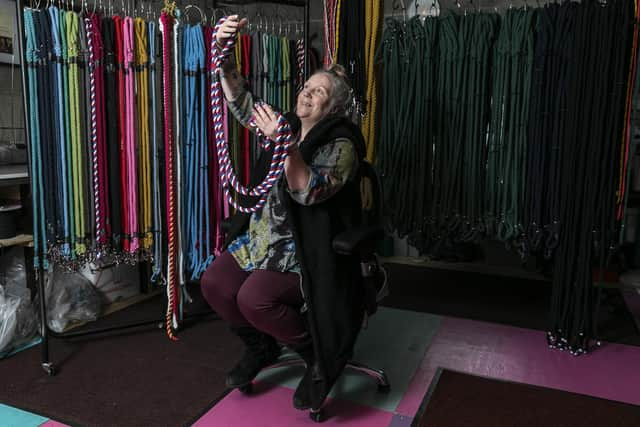Askrigg Ropemakers: Last remaining female ropemaker fears historic craft 'might die out'
Caroline Rodgers, 56, who is one of just 11 traditional manufacturers left in the country, said it would be “tragic” if the 300-year-old heritage trade ceased to exist.
The grandmother learnt how to make ropes when she joined manufacturer Outhwaites in Hawes, North Yorkshire, seven years ago.
Advertisement
Hide AdAdvertisement
Hide AdAfter the business closed in 2022, she bought one of its machines and set up her own company, Askrigg Ropemakers.


Ms Rodgers, who makes a range of products from cotton including traditional halters for cattle, now hopes she can find someone willing to keep the craft alive in the future.
She said: “I’m the only one in the Yorkshire Dales where I live, and there’s been one here since 1905.“Hopefully in the not-too-distant future, I can train up somebody who can do what I do, and just keep it alive.”
Comment Guidelines
National World encourages reader discussion on our stories. User feedback, insights and back-and-forth exchanges add a rich layer of context to reporting. Please review our Community Guidelines before commenting.
